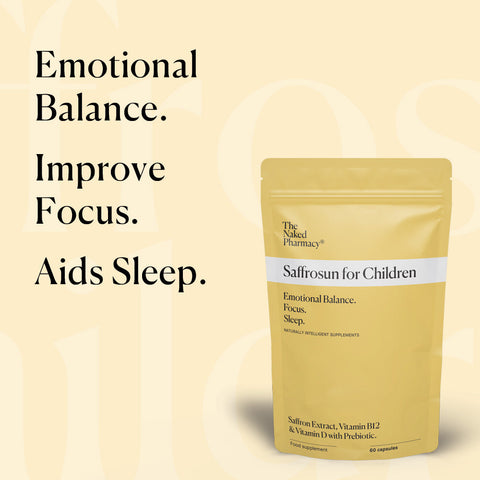Exam stress & young minds
Exams and the build-up to them can be really stressful for parents and students alike. Increased screen time, the pressure to succeed and the inability to switch off can tip the nervous system into permanent “sympathetic nervous system” mode.
This is the “fight or flight” mode the body originally evolved as a mechanism to protect us from imminent danger. The anxiety response in the brain causes a cascade of hormones with wide-ranging effects such as shortness of breath, racing heart, paling or flushing of the face, sweaty hands...the list goes on. And, if left unchecked, may lead to more regular and extreme symptoms. Youngsters who suffer from anxiety may feel abnormal and socially isolated.
Depression is a deeply personal issue and masks itself in so many varied symptoms. Research by the World Health Organisation (WHO) has shown that perhaps the most effective treatment is personal empowerment of the sufferer’s own treatment so that they can learn to recognise and manage their symptoms. Of course, it’s advised that parents assist with this.
Our Advice
Finding the tools that work for the individual is key to success. So we’ve come up with five top tips that you and your child can read through together:
- Regular exercise
A regular exercise routine is both physically and mentally beneficial for health, especially within a group or team which will help reduce isolation.
- Regular sleep
Regular sleep and a bedtime routine are very important. This means turning off all blue light-emitting devices and avoiding food or drink late at night to provide at least two hours to digest. Caffeine and sugary drinks should also be avoided after 1pm.
- Just breathe
Breathing is vital – learn how to retrain the breath. The hormonal cascade causes us to shallow breathe and suck in more air than we breathe out, making the panic worse. A great technique is “The Big Breath”. Psychologist and practitioner Tony Ulatowski has been using this technique in West London with more than 400 students, from preschoolers to secondary students, for over a year, and has received overwhelmingly positive feedback from parents, teachers, and pupils.
- Balance that diet
A healthy balanced diet including “live” foods, vegetables and fruits can be hugely helpful. Amazingly, 90% of serotonin is produced in the gut. A study from Victoria, New Zealand, in 2017 found patients with moderate to severe depression had a statistically significant improvement in their symptoms on a modified Mediterranean diet. Dr. Chatterjee, star of the BBC’s Doctor in the House, shows that diet can make a difference. However, when was the last time your doctor asked you about food when you were concerned about feeling depressed?
- Try supplements
There are also a few natural supplements which are safe, effective, non addictive and adaptogenic, providing an evidence-based approach for mood imbalance and anxiety in both children and teenagers.
The benefits of Saffron
One of the most widely tested natural remedies is the ancient spice, saffron. Saffron targets the gut as well as the brain. Dr. Paul Clayton, Fellow at The Institute of Food, Brain, and Behaviour, believes saffron should be considered in place of current therapies, which he believes are outdated and off-target;
“By targeting core aspects of mood and anxiety, saffron works far more rapidly than the pharmaceuticals, which are shooting at the wrong target. In short, Saffron restores normal nerve function in key areas of the brain. If you have chronic inflammation, the “brakes” are put on a few key processes. Saffron takes the brakes off. Moreover, it acts very fast (hours, not weeks or months), has no withdrawal symptom, no side effects, and is safe to use with children.”
Formulated by a parent, for others in his shoes
When our founder Kevin Leivers, discovered his own child was struggling with hyperactivity and lack of sleep he set out to find a natural product to give to his son. A lack of effective choices led him to develop a child-friendly effective formulation of Saffrosun called 'Saffrosun for Children'.
Since its launch in 2016, we have been delighted with the positive feedback from practitioners and parents alike, who are looking for nutritional support for children which can be safely integrated with conventional medicines.
When faced with a child or teenager who is nervous, has a low mood, or is suffering from poor emotional balance, frequent tiredness and/or poor-quality sleep, a high quality, correct strength food-based supplement is an effective option to use alongside conventional approaches.
At The Naked Pharmacy, we only sell products that meet these precise guidelines so you can be sure you're buying food supplements with ingredients that are proven to work.







